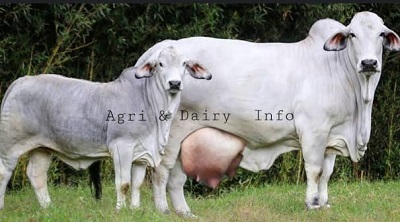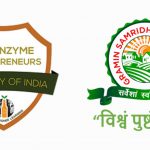
Cow based economics for sustainability (Part-2) : Shruthi & Bharati, entrepreneurs of an NGO, Mystha (Sweet Divinity) based in Telangana & S.K. Singh, CEO, Gramin Samridhi Foundation, based in Bihar
Shruthi & Bharati, entrepreneurs of an NGO, Mystha (Sweet Divinity) based in Telangana & S.K. Singh, CEO, Gramin Samridhi Foundation, based in Bihar
Animal husbandry and agriculture are synergistically involved and are the important source of income and employment in rural areas. Among them, dairying provides security to farmers, especially when agriculture fails. Dairy farming is essential to millions of poor households across the country not only as a source of income but also as a major source of protein, supplementary nutrition, fertilizer, fuel and a store of wealth. Today most of the dairies across India produce milk processed from Jersey and H.F cows. In a bid to feed our growing population we have neglected our native breeds of cows whose milk was always considered to be medicinal. Scientific evidence suggests that milk from desi cattle has several advantages over the milk of exotic European varieties of cattle like Holstein, which were introduced in India as a measure to enhance milk production through cross breeding. The nutritional value of milk of Indian cows is the highest along with many curative properties against many diseases.
In vedic period Cows held great economic value and were the main wealth. A wealthy person was known as gomat. Cows were also offered as gift to someone for sustainability. Cows held a significant position in the trade system of the Rigvedic Aryans.
There are varieties of desi cows in all the states of India which are twice more profitable than the Jessey or Hybrid breed of cows besides the milk quality. It is imperative to foster desi cow dairy and also it is quite easy as a means for sustainability. For any entrepreneur activity there is always a tradeoff of capital and risk involved. From this perspective dairy with desi cows is quite safe because desi cow more immune to disease and consume less care. This is an ideal business for a woman entrepreneur.
With rupees 60,000/- investment one can buy 2 desi cow which can collectively give milk of approximately 12 litres average a day over a period of 8 months. This milk is sold at premium price and we call it A2 milk. Even if we count the normal price at Rs. 60/ a litre, it turns out to be Rs. 720/- per day, Rs. 21,600/- per month. If the combined expenses of food, medicine, insurance and care is counted at Rs. 10,000 a month, the net income turns out to be Rs. 11,000 per month Over a period of 8 months. Once the dry period of the 1st lot of cow starts one can buy again 2 more cows with another investment of Rs. 60,000/- and this cycle of 2 milking cows will continue in this manner.
The fixed cost for shelter for 4- 5 cows may turn out to be Rs. 50,000 for one time. So the total expenses over one year for buying 4 cows (2 plus 2) and fixed cost for shelter is approximately Rs. 1,70,000/- . With 25% subsidy from state government schemes this turns out an investment of Rs. 1,25,000/-. Government of India will provide 25% back ended capital subsidy to General category and 33.33% for SC/ST farmers of the cost of project subject to its component wise ceiling which will be adjusted against the last few instalments of repayment of bank loan.
On the income side the monthly income :
-from Milk Rs. 11,000/-
– Cow urine approx.. Rs. 2000/- a month
– Vermi Compost approx.. Rs. 2,000/- a month
The cow urine and vermi compost can be used as natural fertilizer and pesticide by farming. 4 cows will produce enough resources for meeting the needs and fertilizer and pesticide of a marginal farmer having 2-4 Acres of land. Bioenzym can be produced with organic green waste to meet the additional demand of fertilizer and pesticide needed for farming. Bioenzym has proved to be having anti-infection property and spray of Bioenym in goshala will make sure cowns are not infected by any virus.
Purified desi cow urine is being used for Ayurvedic medicine and little consumption of it proved beneficial in corona pandemic.
So, in summary we get a monthly minimum income of approximately Rs. 15,000 a month with an investment of 1.25 lakh. The margin will be increased if the milk is converted into Ghee as the byproduct (Butter milk) will also fetch extra money approximately at Rs. 30/- per litre. Besides the monetary gain, the intangible benefits with desi cows are many. The blood pressure of the person have been reported to be normal who are living with desi cows.
The challenge is to have bulls of the same breed for mating cows but this can be easily circumvented if more people can go for desi cow dairy in the vicinity.
Desi cow based small dairy business is an ideal choice for women and retired persons for sustainability for livelihood and for sustainability of nature.







